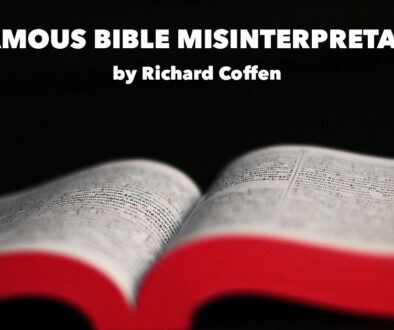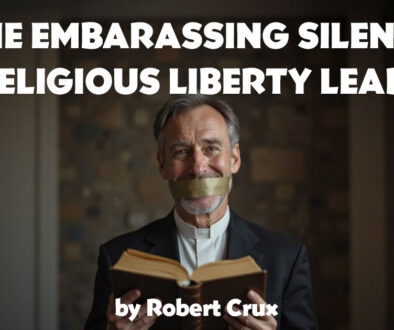When Silence Becomes Complicity: What an Adventist Partnership with Charlie Kirk Says About Us
by Christopher C. Thompson | 15 April 2025 |
The recent participation of prominent Seventh-day Adventist figures at the Wisdom Pearl event, where they shared a stage with political commentator Charlie Kirk, marks a disheartening and dangerous moment for the Adventist Church in America. While some may brush it off as a non-political act of engagement, the implications of this partnership run deep, cutting into the soul of a church that has long claimed a legacy of justice, inclusion, and neutrality in the face of partisan ideology.
Charlie Kirk is no mere conservative commentator. He is the founder of Turning Point USA, an organization that has repeatedly been accused of platforming white nationalists and advancing racially charged, anti-immigrant rhetoric. His public dismissals of structural racism and attacks on social justice movements have made him a lightning rod of controversy—and a clear symbol of division in American life.
For prominent Adventist leaders to willingly stand beside him is not simply a lapse in judgment; it’s a betrayal of the church’s history, its diverse membership, and the very gospel it proclaims.
Dangerous contradictions
And here’s why: Kirk’s rhetoric directly contradicts several core doctrines of the church.
- The doctrine of the remnant and universal invitation: The Adventist Church teaches that God calls people from “every nation, tribe, language, and people” (Revelation 14:6). This inclusive vision of God’s kingdom is antithetical to nationalist ideologies that promote racial or cultural superiority. Kirk’s inflammatory language around immigration and his championing of ethno-nationalist sentiments violate global, welcoming ethos of the Kingdom of God and Christ himself.
- The principle of Christian equality and the image of God: Adventists believe that all human beings are created in the image of God (Genesis 1:27) and are therefore of equal worth. Any rhetoric that dehumanizes immigrants, mocks racial justice efforts, or minimizes the lived experiences of marginalized communities stands in direct opposition to this foundational belief.
- The ministry of healing and compassion: As articulated in both the ministry of Jesus and the writings of E.G. White, the Adventist Church is called to be a healing presence in the world—standing with the oppressed, advocating for the voiceless, and bringing hope to the hurting. Kirk’s frequent ridicule of marginalized groups and his antagonistic posture toward social justice contradict the church’s mission of restorative compassion.
- The church’s historic stance on religious liberty and separation of church and state: Adventists have long been wary of fusing faith with political power, recognizing the dangers of compromising the Gospel with partisan agendas. Aligning with figures such as Kirk, who often merge religion with hardline politics, risks diluting the prophetic identity of the church.
The Adventist Church, especially in North America, has walked a delicate line of political neutrality, seeking to be a spiritual rather than political voice. But this public association with Kirk sends a strong and chilling signal: that some Adventist leaders are willing to flirt with ideological extremism if it aligns with their cultural or political preferences. And that’s a line we cannot afford to cross.
This partnership does more than compromise our witness to the world. It erodes trust within our own walls. Black Adventists, Latino Adventists, immigrant communities, and young people of all backgrounds who are deeply invested in justice and equity are watching closely. Many of them have already felt overlooked or tokenized in a church that has struggled to reckon with its own racial inequities. For these communities, the embrace—implicit or explicit—of someone like Kirk is a slap in the face. It is a loud, clear message: your pain is negotiable.
I need to be clear here and say that I personally felt offended and betrayed to see Adventist leaders platforming with Kirk. My father-in-law is a pilot—he is also a black man. When Charlie Kirk said that he feels unsafe on a plane with a black pilot, that was a direct insult to my family and particularly to a man whom I love and respect, and who also happens to be a seasoned and skillful pilot and aeronautical engineer. It was a brazen insult.
What others see
And to those outside the church, the optics are just as damning. What does it say to the public when a faith group founded on principles of liberty of conscience and social concern partners with someone who routinely mocks those very values? We cannot preach a Christ of compassion while aligning ourselves with voices of division.
To be clear: this is not a call for ideological conformity or partisan purity. It is a call for moral clarity. Our faith tradition should challenge us to be better than this—to stand firmly with the marginalized, to listen carefully to those who hurt, and to resist the seductive pull of political expediency.
There is still time to right this wrong. But it begins with accountability. Adventist leaders who participated in this event must explain their presence and reckon with the harm it has caused. And more broadly, the church must reaffirm its commitment to justice, equality, and the radical inclusion modeled by Jesus himself.
I preached a sermon in my church and published an article on this very platform that drew significant ire from several church leaders. It was deemed as too political. It appears that when some say “too political” or “too partisan,” what they really mean is we appear to them to be aligned with the “wrong party.” Here’s the disclaimer: I’ve been a registered independent ever since I could register. Yet these matters are not about right or left. This is about right and wrong.
Silence in the face of injustice is complicity. And complicity, cloaked in religiosity, is perhaps the most dangerous sin of all. If we are to remain a prophetic people, we must reclaim our voice—not in alliance with power–especially “white power,” but in solidarity with truth.
 Christopher C. Thompson is a pastor in Beaufort, South Carolina.
Christopher C. Thompson is a pastor in Beaufort, South Carolina.




